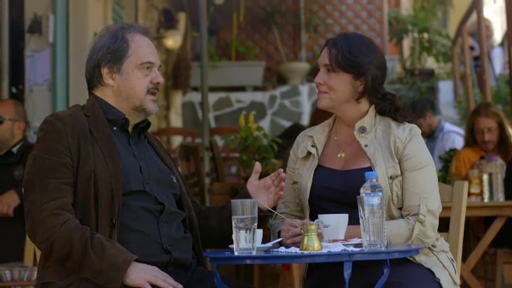1.1 The value of doubt
It is sometimes suggested that academics and researchers are doubtful by nature, and that they rarely make a bold assertion, because they can always imagine circumstances that could undermine their claim. That may be true, but it is a relatively unhelpful stance to adopt in day-to-day healthcare service improvement. You need to proceed with an element of trust and consultation, but nor can you remain paralysed by speculation. That said, an element of doubt about what you know, what you think and what others argue, will stand you in good stead if you continue to study this topic.
Activity 1

Transcript: Socrates: Genius of the Ancient World
Watch this excerpt from a BBC programme on the ancient Greek philosopher Socrates and consider the following questions:
- How helpful do you think this method is when considering service improvements?
- What ‘tips’ would you take from Socrates in facilitating dialogue with others in your healthcare setting, as you debate service improvement?
Discussion
You may have realised that central to Socrates’s thinking was empathetic and rigorous argument. This might well be helpful to you when planning a service improvement though it would need careful handling. What you glean from the literature, from theory, or from an expert speaker, is information. It is only as you use that information, and discuss and debate it with others, that learning, development and improvement take place. Learning how to argue and debate exercises your critical faculties, and (suggests Socrates) helps develop a sense of humility. In sharing a rhetorical argument with colleagues or other stakeholders in a healthcare service, you might discover a lot about yourself and the situation. It need not be a contest, a combat, a ‘game of chess’.
The ease of communicating via email, social media and online forums now means that it is possible to conduct ‘dialogues’ in new ways that are not literally face-to-face, adopting Socrates’ principles and using ‘netiquette’ in your discussions with others. The tips from Socrates are valid in any medium:
- Don’t simply think it, discuss it. Only in this way will you deepen your command of ideas.
- Approach your discussions with a spirit of discovery, wondering what this might teach you. There may be no right or wrong, absolute best or worst perspective, only a diversity of rich perspectives that you can then deliberate upon.
- Be prepared to ‘turn around’, to question your comfortable and familiar assumptions. While you might fear that others will judge you as weak because of this, it means that others note your openness and thoughtfulness.
Having explored the difficulties of knowledge and speculated over the claims about what constitutes knowledge, you are ready to consider the concept ‘service’ in the next section. If you are engaged in service improvement, then you need to be prepared to consider what ‘service’ is.
